When it comes to managing vendor relationships, sometimes the hardest decision is knowing when to say goodbye. Whether it's due to performance issues, changing business needs, or financial concerns, terminating a vendor contract can feel daunting. However, clear communication and a well-structured letter can make the process much smoother. In this article, we'll guide you through a professional letter template for terminating vendor contracts, ensuring you handle the situation with ease and clarityâso keep reading to discover our step-by-step approach!

Clear and Concise Subject Line
Terminating vendor contracts requires precise documentation and clarity to prevent misunderstandings. The subject line should be straightforward, indicating the purpose of the communication. A typical subject line might read "Notice of Contract Termination: [Vendor Name]," specifying the vendor's name for immediate recognition. Including the effective termination date (for instance, "Effective [Date]") in the subject can provide additional clarity and urgency. Therefore, when drafting the email, the content should ensure that all contractual obligations are referenced, including deliverables, timelines, and penalties, encapsulating the termination's context and ensuring compliance with relevant terms outlined in the contract.
Contract Reference Information
Termination of vendor contracts involves communication of intent to discontinue services with specific contractual references and related details. The vendor contract, identified by its unique reference number, outlines the terms agreed upon, including obligations, timelines, and deliverables. Details such as the commencement date (e.g., January 15, 2022) and the end date (e.g., January 14, 2023) are crucial for clarity. The notice period, often 30 to 60 days, must adhere to the contractual stipulations, allowing both parties time to transition. Additionally, any relevant performance metrics or service level agreements directly influence the termination process, ensuring fairness and adherence to legal expectations.
Termination Date and Notice Period
Vendor contracts often include specific termination clauses detailing the notice period required for cessation, typically ranging from 30 to 90 days, depending on the agreement's terms and the nature of the services provided. For instance, a contract may specify that a vendor must receive written notice of termination 60 days prior to the desired end date, allowing both parties to settle outstanding obligations, finalize any pending transactions, and facilitate an orderly transition. Failure to adhere to the stipulated notice period can result in penalties or an extended obligation to fulfill terms, creating potential financial implications for both the contractor and vendor relationship.
Reason for Termination
Termination of vendor contracts often arises from various reasons including unsatisfactory performance, failure to meet agreed-upon standards, or breach of contract limitations. For example, the performance metrics outlined in the contract, such as delivery timelines or quality standards, may not have been met consistently, leading to operational inefficiencies. A vendor may also fail to comply with safety regulations, resulting in legal consequences for the contracting entity. Furthermore, changes in business strategy or financial constraints could necessitate a reevaluation of vendor relationships, prompting the need to terminate existing contracts. It is crucial to document these reasons meticulously to ensure a clear understanding and avoid potential disputes.
Instructions for Next Steps and Closing Remarks
Terminating vendor contracts involves several crucial steps to ensure a smooth and professional process. Firstly, review the contract's termination clauses outlining specific procedures and notice periods, often 30 or 60 days. Prepare a formal termination letter detailing the reasons for termination, such as non-compliance with service level agreements or changes in business strategy. Include relevant contract details like contract number and date of initiation. Send the letter via certified mail or email with a read receipt to document delivery. Schedule a final meeting if necessary to discuss outstanding obligations and any handover processes. Ensure all financial matters, including final payments and outstanding invoices, are addressed to prevent disputes. Finally, maintain professional relationships for potential future collaborations, documenting all communications related to the termination for legal and record-keeping purposes.
Letter Template For Terminating Vendor Contracts Samples
Letter template of vendor contract termination due to performance issues
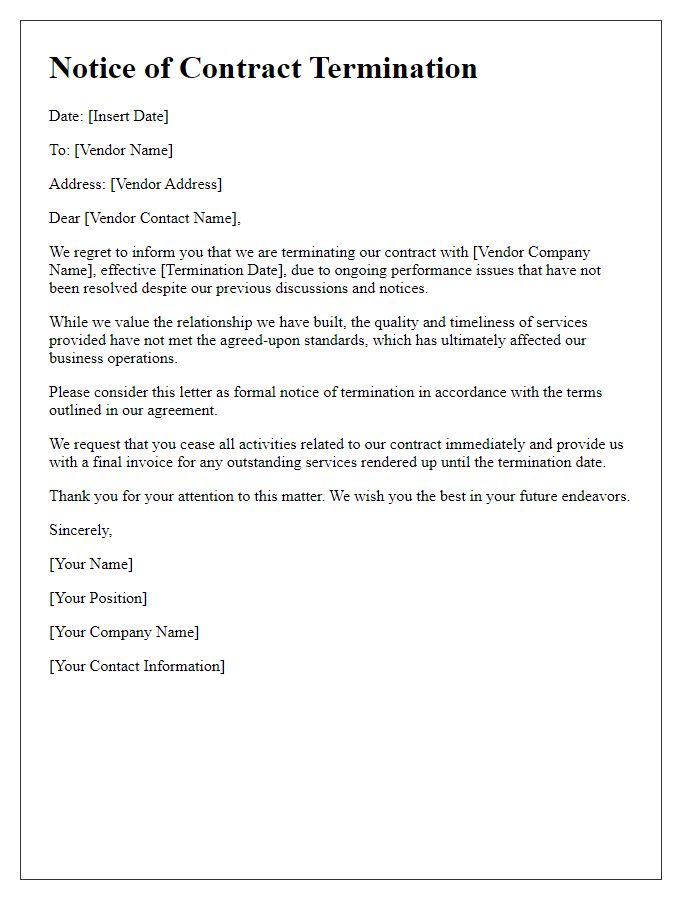
Letter template of vendor contract termination for budgetary constraints
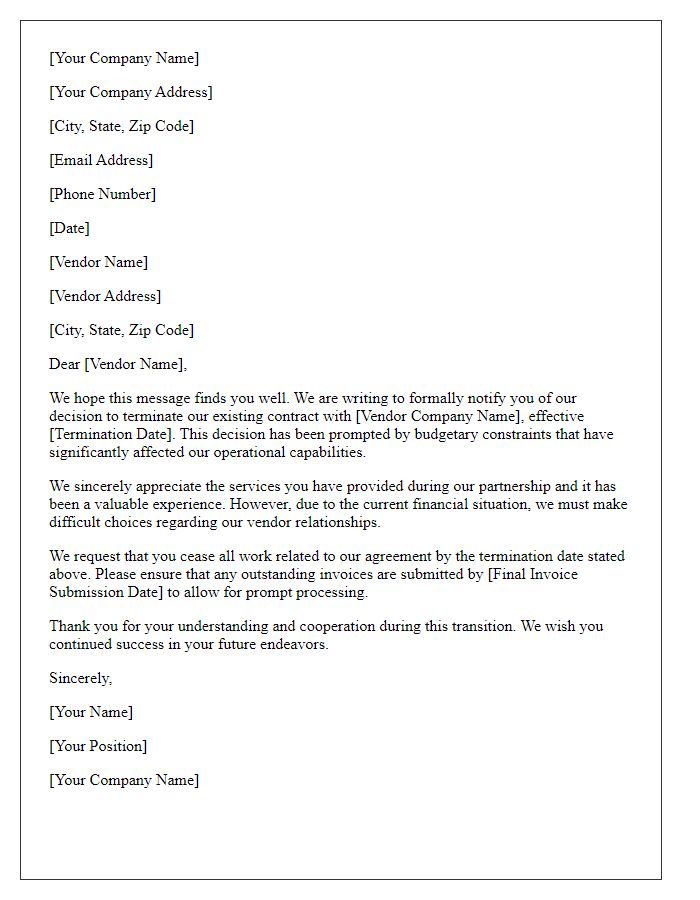
Letter template of vendor contract termination because of unsatisfactory service
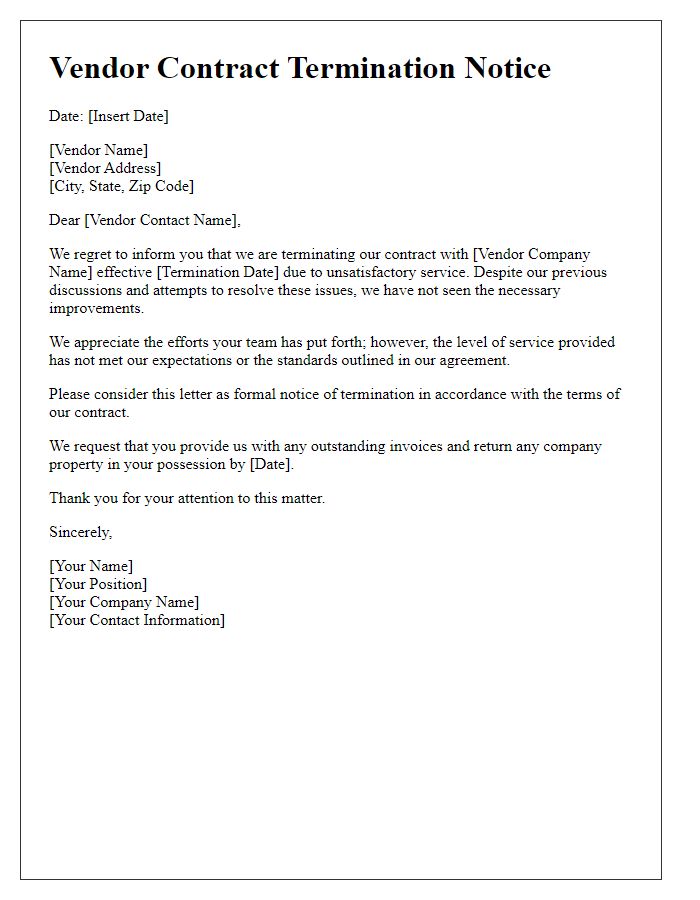
Letter template of vendor contract termination based on change in business needs
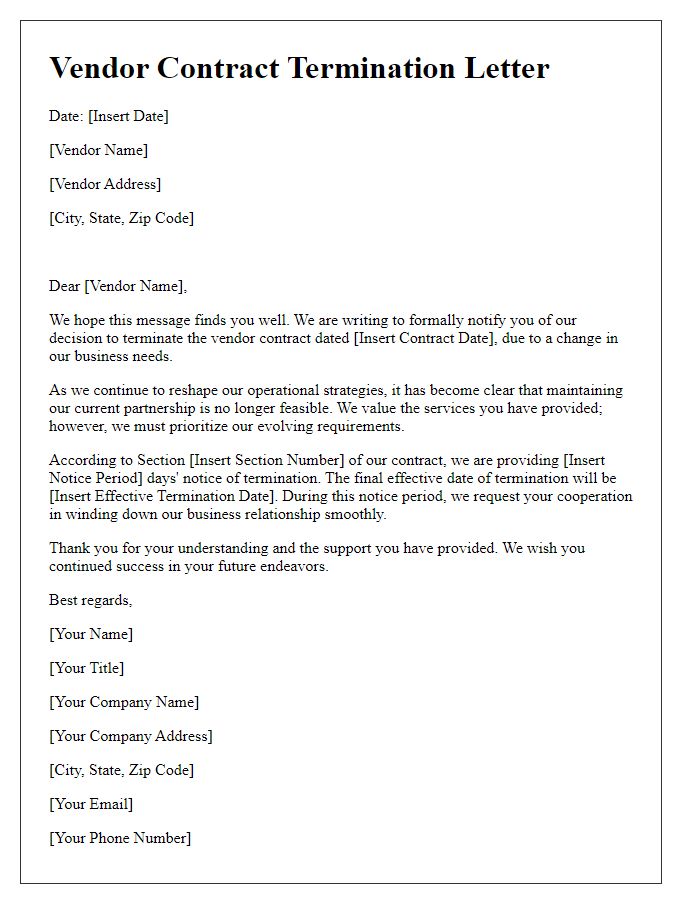
Letter template of vendor contract termination due to poor communication
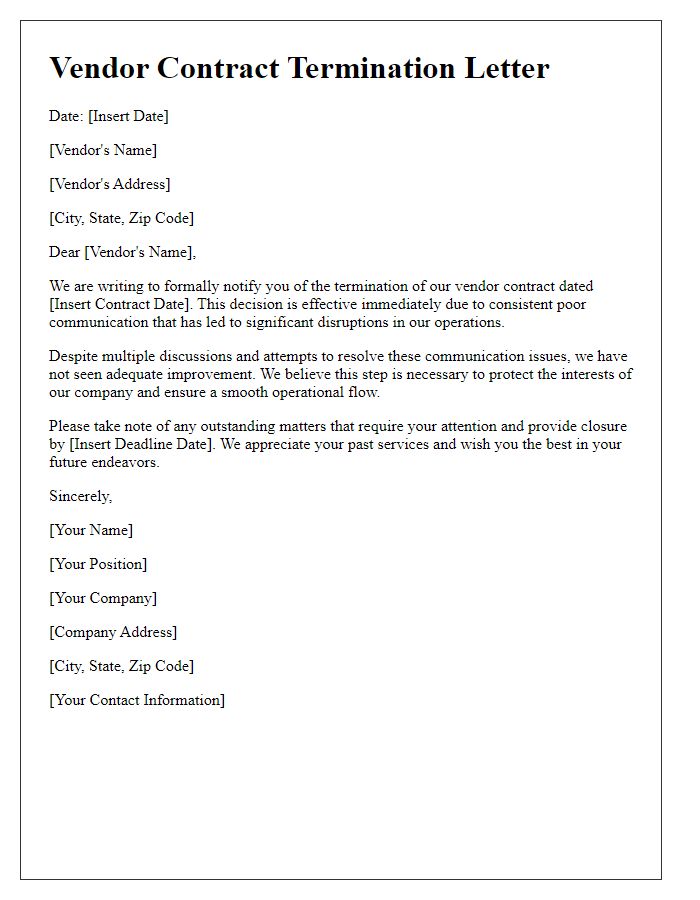
Letter template of vendor contract termination for non-compliance with terms
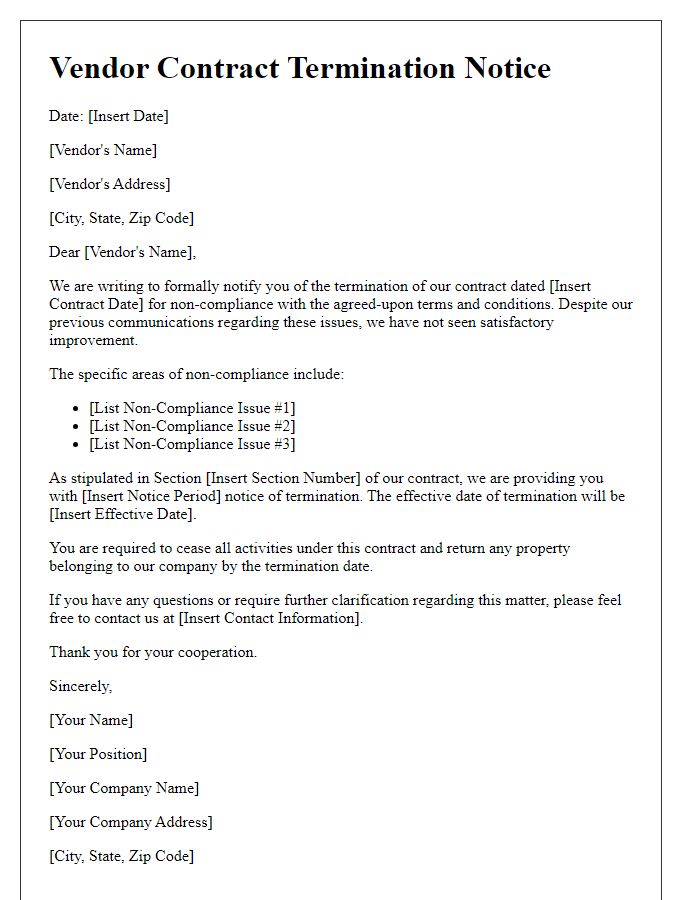
Letter template of vendor contract termination for strategic realignment
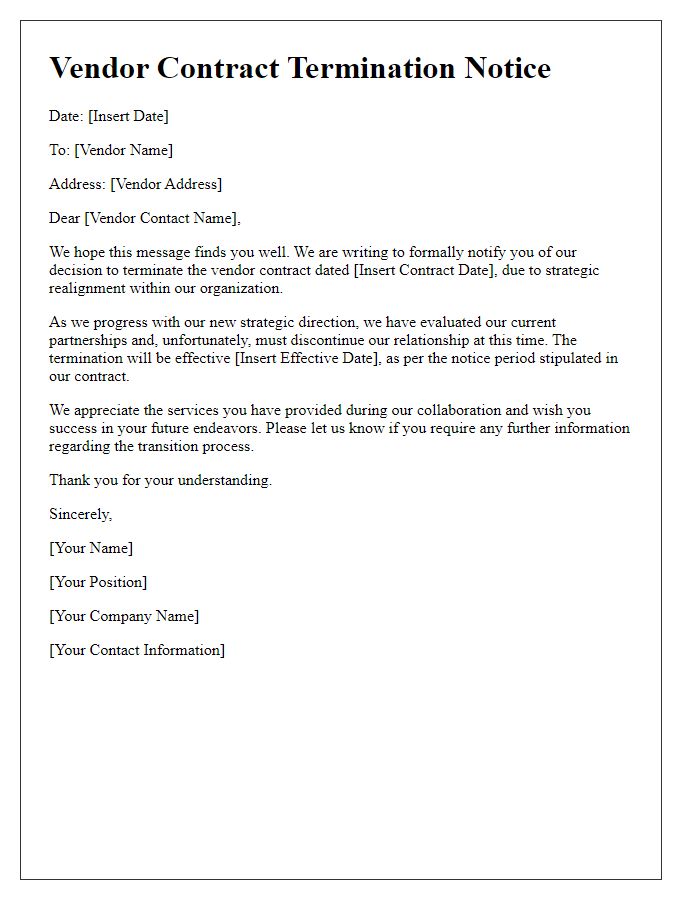
Letter template of vendor contract termination required for project completion
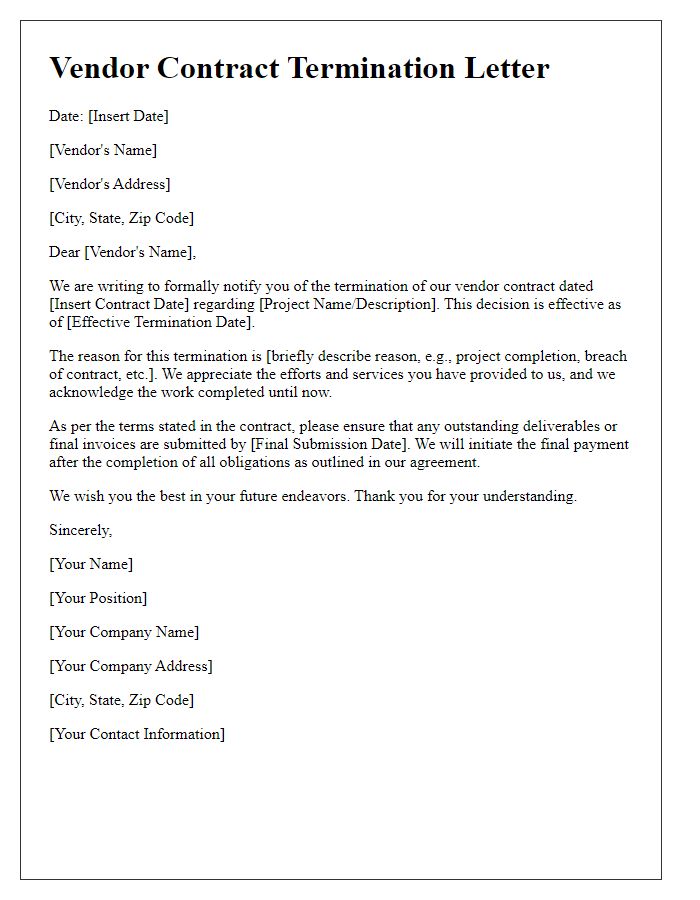

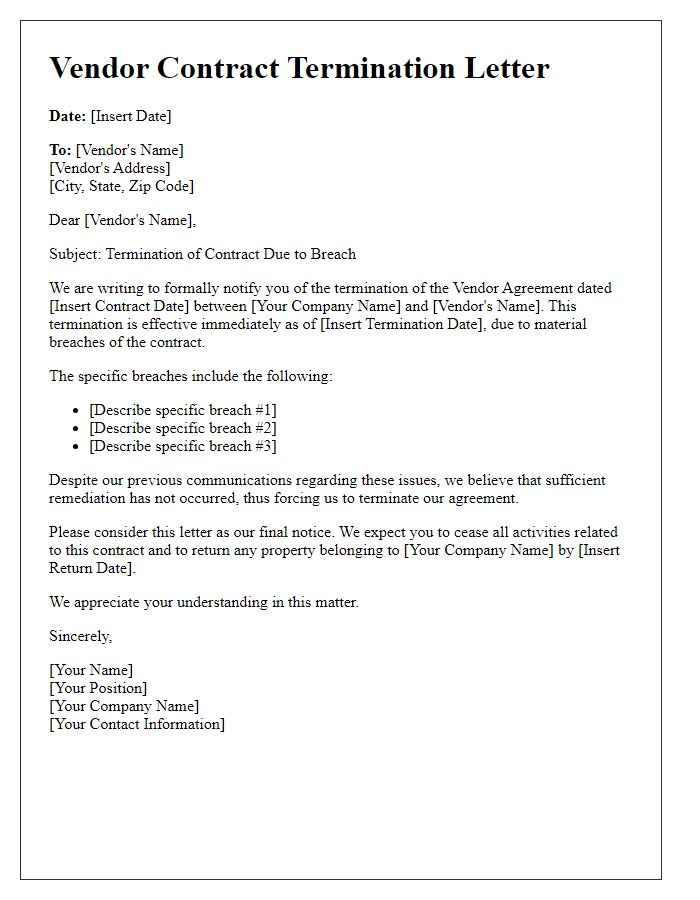
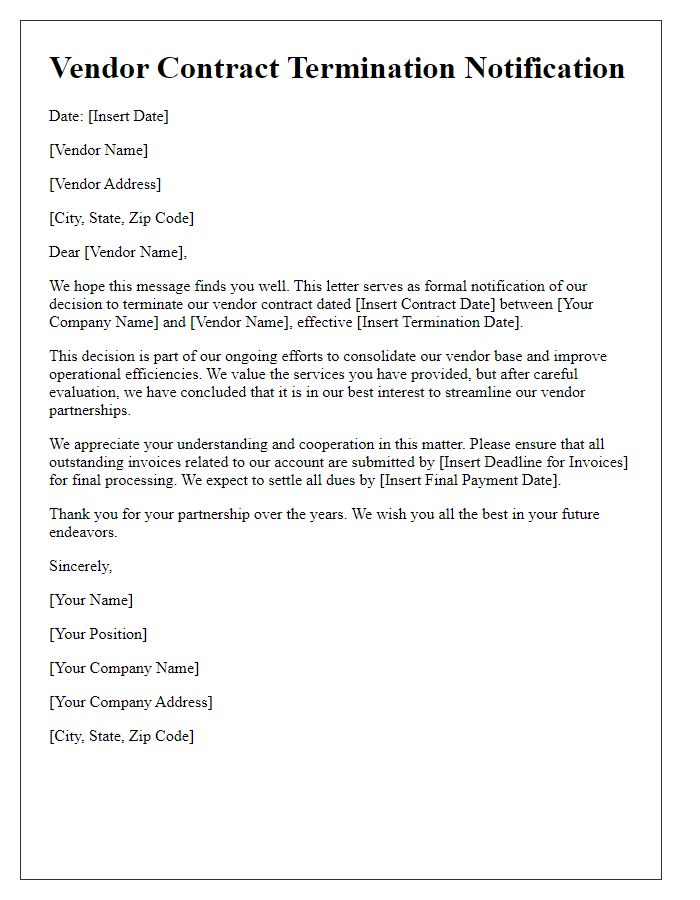


Comments